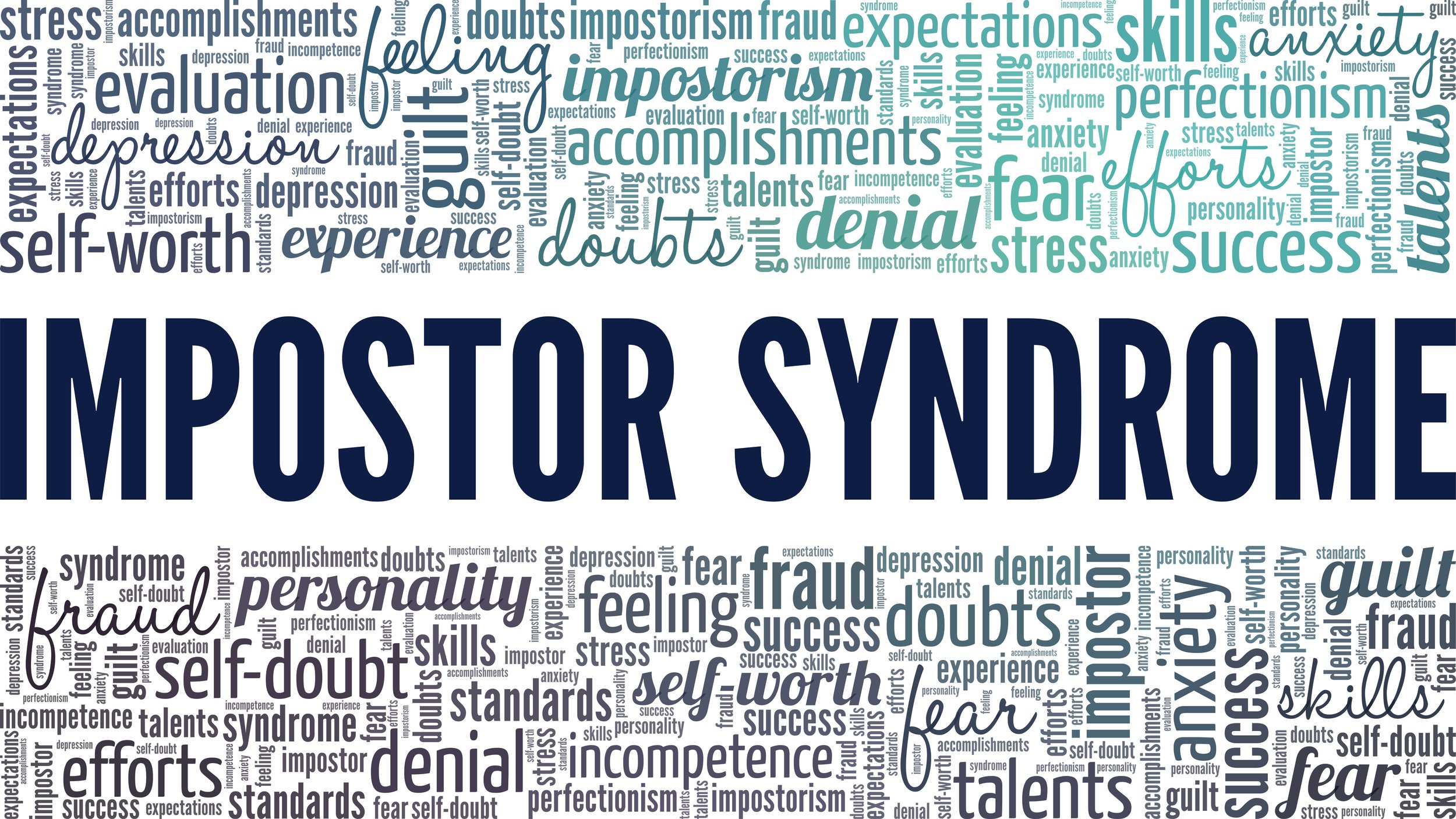What is Imposter Syndrome and How Does it Affect Your Work Experience?
Imagine a woman named Guadalupe, the first-ever Latina executive at a Fortune 500 company. The daughter of Honduran immigrants, she recognizes the tremendous sacrifices her parents made to give her the opportunities she enjoys today, and she wants nothing more than to repay them for all they’ve given her. She fought her way from the mailroom to the board room—good for Guadalupe! Her family beams with pride every time they talk about her and all she’s accomplished. But as she sits at the executive table she’s worked so hard to reach, she feels a sudden pang of insecurity. None of her colleagues look like her. She’s one of the only women at the table, and certainly the only woman of color. Suddenly, looking around at this powerful crowd of people, she feels totally alone. Every movement of her body starts to feel wrong. She starts rubbing her wrists the way she always does when she’s anxious. Her mind begins racing with nervous thoughts: "What am I doing here?" Why did I think this was a good idea? Are they going to like me? I can’t do this job. I never should’ve applied for this. They’re going to find out I’m not as good as I told them I was.
What Guadalupe experienced is a well-documented psychological phenomenon called imposter syndrome.
What is Imposter Syndrome?
Imposter syndrome is the inner belief that, secretly, you don’t deserve the accolades you receive. It’s that critical inner voice that leads you to doubt yourself, your accomplishments, and whether you’ve really earned that seat at the table. Some symptoms of imposter syndrome include feeling like a fraud when you receive a promotion, constantly worrying that others will soon discover that you’re not as good as you pretend to be, or worrying that you’ll never have truly earned your place at the top.
Many people know the definition of imposter syndrome or have at least a general sense of what it looks like. But for women of color in the workplace, it is particularly important to understand how it manifests and realize that the negative inner voice you hear criticizing you in your head is not telling you the truth.
Who Experiences Imposter Syndrome at Work?
According to therapist Bryan Daniel Norton, the demographics most at risk of imposter syndrome are women, people of color, and members of the LGBT community. He argues that when populations already facing structural inequality encounter prejudicial stereotypes at work, it can create feelings of inadequacy.
Why do Women and Women of Color Experience Imposter Syndrome at Work?
There are a variety of reasons why marginalized employees experience imposter syndrome.
in the workplace. Those reasons include:
Lack of representation: Marginalized employees like women of color may experience imposter syndrome if they don’t see people like themselves represented in positions of power. If they are the only members of their identity group at a table or in a boardroom, they might feel as though they’re doing double duty: not only do they feel the pressure to be great at their jobs that everyone feels, they feel they also need to present a positive image of women of color in order to combat stereotypes. For example, while Guadalupe was working her way into an executive position, she may have heard colleagues say that Hispanics are "lazy" and that she only rose through the ranks of the company by "sleeping her way to the top." She may have internalized these racist and sexist comments and now feels added pressure to prove that these stereotypes are untrue, compounding her sense that she’s got more to prove than her colleagues do. I'm struggling to relate to colleagues. Being the only woman or person of color on your team can be exhausting. Being stereotyped as "the diversity hire" can be alienating and prevent you from forming meaningful relationships with colleagues that generate the support you need to thrive.
Feeling different from the archetypal "go-getter:" While talent is equally distributed among members of all ethnicities, genders, and sexualities, confidence (unfortunately) still is not. Studies find that women only apply for jobs when they think they possess 100% of the requirements, while men apply when they have 60%. Seeing people who look different than you (namely white men) climbing the ladder at the office, while people who do look like you do so less frequently, can take a toll on your confidence. It leaves you feeling as though people like you don’t belong at the top. "
Assessment culture: " Robin J. Ely, professor of business at Harvard, has extensively researched and written about a phenomenon she calls "assessment culture." Also known as "you've got it or you don’t," a company that has an assessment culture assumes that talent is set in stone rather than fluid and able to grow. She argues that in a culture like this, employers will often say things like, "I know talent when I see it." The problem is, the people they "see" talent in are usually the people who remind them of themselves: white, heterosexual men. This problem of "sameness" locks diverse talent out of positions of power by pathologizing differences rather than celebrating employees’ unique talents and ability to learn.
It is important to remember that none of these problems were created by the marginalized employees themselves. These issues are pre-existing, structural problems, and they will require the company’s full and enthusiastic participation to fix.
How Can We Combat Imposter Syndrome in the Workplace?
There are many steps employers and companies can take to improve their work culture, so everyone feels empowered and included, such as:
Embrace real diversity: Diversity, Equity, Inclusion, Belonging, Accessibility, and Justice (DEIBAJ) efforts in the workplace cannot and should not be understood as "checking boxes." DEIBAJ must be real, meaningful, and result in everyone being represented fairly and equally. It should translate to a cultural transformation in which marginalized employees don’t feel like "spokespeople '' or "representatives" for their identity group, but instead feel like respected members of the team. There should be a real corporate strategy, where DEIBAJ is integrated into the fabric of the company and department heads are held accountable for creating diverse and inclusive work environments. It should mean diverse hiring at every level of a company, not just the lower levels. But above all, employers should recognize that all employees can and will thrive if given the chance. For too long, stereotypes and assumptions have kept many talented employees locked out of positions of power. Being the "first'' and the "only" is not necessarily a good thing. Be bold and be willing to ask the hard questions of your colleagues.
If the pandemic taught us anything, it taught us that we have a strong need for community. Surround yourself with other diverse leaders in spaces where you’re free to vent, share your thoughts and experiences, as well as discuss best practices for corporate challenges. Attend networking events, conferences, and meetings for women, women of color, LGBTQ+ and people with disabilities (visible and invisible) to find others who can relate to your day-to-day life, give you some perspective, and a shoulder to lean on when you need it.
Practice self-care: Self-Care is more than taking a mental health day or journaling (although those are important too!). Self-Care for women with imposter syndrome means recognizing when you’re at your limit and giving yourself grace. It means actively working to unlearn internalized prejudices so you can free yourself from undue pressure to be perfect. It means looking in the mirror and practicing affirmations in which you tell yourself the truth: that you are every bit as powerful, talented, and exceptional as any of your colleagues, and that you deserve every accolade you’ve earned. Dr. Gena Media offers an online self-care lounge and community for professional women of color called Serenity Sanctuary that offers an opportunity to connect with others who will empower you and help nourish your mind, body, and spirit.
Bottom Line
Imposter syndrome occurs when a company’s culture is not inclusive enough. It stems from a culture in which only certain types of employees are celebrated and others are made to feel marginalized. When you hear that negative inner voice telling you that you are less worthy than others, remember that no one forced your bosses to hire you or promote you. They chose you because your resume was the most exceptional, stand-out application on their desk. They recognize your incredible talents, and you deserve to recognize your talents, too.

